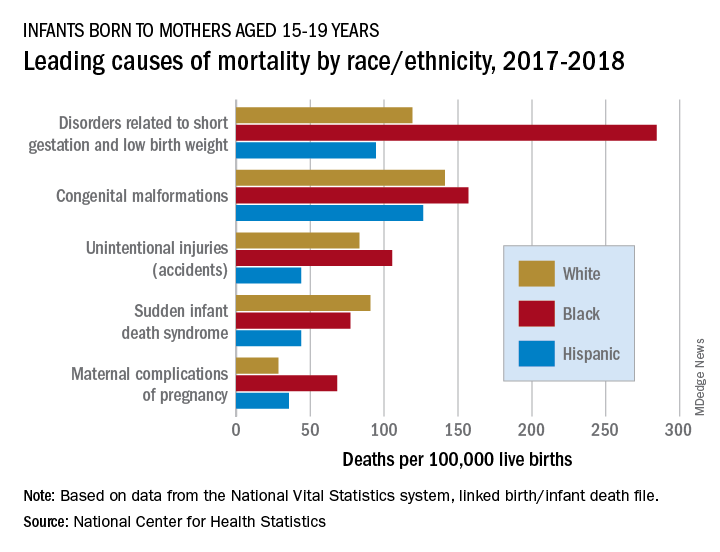The Breakthrough Prizes are prestigious awards often regarded as the “Oscars of Science,” celebrating monumental advances in various fields such as life sciences and physics. Recently, three Harvard scientists—Alberto Ascherio, Joel Habener, and David Liu—were honored for their outstanding contributions to gene editing, research on multiple sclerosis, and innovative treatments for obesity. Ascherio’s groundbreaking discovery linking Epstein-Barr virus to multiple sclerosis has shifted the landscape of MS research, while Habener’s work on the hormone GLP-1 has paved the way for revolutionary obesity treatments. Liu’s development of advanced gene editing techniques is poised to change the future of genetic medicine. Through these significant breakthroughs, the recipients demonstrate the impact of dedicated scientific inquiry on global health challenges, including the fight against chronic diseases.
The recent accolades bestowed by the Breakthrough Prizes highlight remarkable strides in scientific innovation, particularly from elite researchers at Harvard University. This year, three notable scholars were recognized for their groundbreaking work in critical areas of health and medicine, including the exploration of gene manipulation techniques and the comprehensive study of autoimmune disorders. Notably, the awardees are making waves in the realms of obesity medications and chronic illness interventions, reflecting a broader trend in the scientific community towards integrating advanced research with real-world applications. As these top scientists address pressing health issues such as multiple sclerosis and obesity, their contributions are reshaping the future of disease treatment and prevention. The recognition from the Breakthrough Prizes not only honors their individual achievements but also emphasizes the collaborative nature of modern scientific advancements.
Harvard Scientists Honored with Breakthrough Prizes
The 2025 Breakthrough Prizes, often referred to as the “Oscars of Science,” recently recognized three distinguished Harvard scientists for their groundbreaking contributions to medical research. Alberto Ascherio, Joel Habener, and David Liu received accolades for their transformative work in the fields of gene editing, multiple sclerosis research, and obesity treatment. The Breakthrough Prizes celebrate remarkable accomplishments in life sciences and aim to highlight advancements that hold the potential to revolutionize how we understand and treat diseases affecting millions globally.
Specifically, Ascherio’s long-term study linking Epstein-Barr virus to multiple sclerosis has opened new avenues for research and potential vaccine development. Meanwhile, Habener’s research on GLP-1 has led to innovative treatments that are reshaping diabetes and obesity management. Liu’s pioneering of cutting-edge gene editing technologies positions him at the forefront of genetic research, allowing for therapies that could potentially address various genetic disorders. Together, these scientists exemplify the spirit of innovation that the Breakthrough Prizes seek to honor.
The Impact of Gene Editing on Disease Treatment
Gene editing, particularly the techniques developed by David Liu, represents a monumental shift in the landscape of medical science. Base and prime editing technologies enable precise alterations to the DNA, offering a robust approach to correcting genetic variations that lead to numerous diseases. This precision not only enhances the efficacy of treatments but also ensures a significantly reduced risk of unintended genetic modifications, prompting a safer avenue for clinical applications. As researchers explore the potential of these technologies, the dream of curing inherited diseases may soon become a reality.
As these gene editing technologies gain traction, they are already being integrated into clinical trials, demonstrating life-saving results for patients suffering from genetic disorders. The implications extend far beyond treating existing conditions; they embody a proactive approach to medicine, paving the way for preventive strategies against diseases that were previously thought untreatable. With ongoing research and breakthroughs, gene editing may soon reshape our entire understanding of disease prevention and health management.
Understanding Multiple Sclerosis Through Innovative Research
Alberto Ascherio’s groundbreaking research on the Epstein-Barr virus has fundamentally reshaped our understanding of multiple sclerosis (MS), a disease that has long puzzled scientists. By analyzing data from over 10 million U.S. soldiers, Ascherio established a significant link between Epstein-Barr infection and an increased risk for developing MS. This pivotal study not only highlights the importance of viral infections in autoimmune diseases but also prompts new directions for treatment strategies aimed at mitigating the effects of the virus.
The findings have ignited interest in developing targeted vaccines and therapies that address the underlying causes of MS, rather than merely its symptoms. With no effective cure currently available, Ascherio’s research could lead to vital advancements in MS treatment, offering hope to the nearly 3 million people affected worldwide. The work exemplifies how the integration of epidemiology and infectious disease research can unveil new insights into chronic health issues.
Advancements in Obesity Treatment with GLP-1 Research
Joel Habener’s contributions to the discovery of glucagon-like peptide-1 (GLP-1) have revolutionized obesity treatment strategies. With its dual function of regulating blood sugar levels and appetite, GLP-1 has emerged as a key player in managing Type 2 diabetes and obesity. This hormone’s effects extend beyond mere appetite suppression, impacting multiple physiological systems within the body, which underscores the complex interplay between hormones and metabolic health.
The development of GLP-1-based therapies has provided patients with effective options for weight management, significantly improving their quality of life. Clinical studies show that these treatments not only aid weight loss but also reduce the risk of obesity-related complications, such as cardiovascular diseases. As Habener and his colleagues continue to investigate the intricate roles of GLP-1, further breakthroughs are anticipated, potentially leading to novel weight management solutions that can combat the obesity epidemic.
The Role of Harvard Scientists in Pioneering Medical Discoveries
The groundbreaking work of Harvard scientists, particularly Ascherio, Habener, and Liu, underscores the importance of academic research in advancing medical science. With their innovative approaches and persistent inquiry, these researchers are transforming our understanding of diseases and paving the way for new treatment modalities. The Breakthrough Prizes highlight the vital contributions of these scholars, recognizing their commitment to scientific discovery and its impact on public health.
As the landscape of healthcare continues to evolve, the need for continued investment in research and development becomes increasingly apparent. The accolades received by these Harvard scientists not only celebrate their individual achievements but also inspire the next generation of researchers to push boundaries and seek solutions to pressing health challenges. Their work serves as a reminder that collaboration, creativity, and resilience are essential components in the quest for medical breakthroughs.
The Future of Genetic Research and Treatment Options
The advent of cutting-edge gene editing technologies has expanded the horizon of genetic research significantly. With methodologies such as base and prime editing, researchers are now equipped to tackle a wide array of genetic disorders with precision. This marks a pivotal moment in the field of genetics, where the concepts of treatment and perhaps even prevention of genetic diseases come into focus. Such advancements are crucial not only for treating existing conditions but also for breaking the cycle of inherited diseases.
Furthermore, as researchers globally embrace these technologies, we can expect a collaborative push towards harnessing their full potential. The intersection of gene editing with other medical fields, like immunotherapy and personalized medicine, presents exciting possibilities. Innovations in genetic research will likely lead to intricate treatment options tailored to individual genetic makeups, thus heralding a new era in healthcare that emphasizes precision medicine.
Recognizing the Contributions of Women in Science
While the recent Breakthrough Prizes celebrated significant achievements in science, it is essential to acknowledge the contributions of women in these fields, often overlooked in the discourse. Women have been central to groundbreaking research and advancements in medical science, including pivotal roles in studies surrounding multiple sclerosis and obesity treatments. The progress made by female scientists exemplifies the necessity of diverse perspectives in scientific inquiries and the importance of inclusivity in research environments.
Encouraging more women to pursue careers in science, technology, engineering, and mathematics (STEM) is crucial for fostering innovation and progress. Initiatives aimed at reducing barriers and promoting gender equity in scientific fields are vital for ensuring that diverse talents can contribute to solving pressing health challenges. Advocating for female representation in positions of influence will not only advance scientific discovery but also inspire future generations of women scientists to lead.
The Importance of Federal Funding in Scientific Research
Federal funding plays a pivotal role in the advancement of scientific research, particularly in groundbreaking studies like those conducted by the Harvard scientists awarded Breakthrough Prizes. Financial support from the government enables researchers to explore innovative ideas, conduct extensive clinical trials, and translate their findings into real-world applications. Such funding is crucial for maintaining the momentum of scientific discovery, particularly in areas such as gene editing and disease research.
Moreover, sustainable support from federal agencies can facilitate collaboration among institutions, allowing for the pooling of resources and expertise. As interdisciplinary approaches continue to gain traction, having a solid foundation of funding is essential for accelerated advancements in health research. This underlines the broader impact of public investment in science, which can lead to significant breakthroughs benefiting society as a whole.
Connecting Research to Community Health Initiatives
The translation of scientific research into community health initiatives is a vital step in addressing public health challenges. Initiatives that stem from the groundbreaking findings of researchers like Ascherio and Habener can lead to tangible changes in how communities manage health issues such as multiple sclerosis and obesity. Engaging local populations in awareness campaigns and preventive measures informed by scientific research is crucial for improving health outcomes.
By bridging the gap between research and community health application, scientists can ensure that their discoveries have a meaningful impact on public health. This involves not only educating communities about the importance of vaccinations and treatments but also fostering collaborations with local health organizations. As the scientific community continues to revolutionize healthcare, integrating research insights into community health strategies will be essential for effective disease prevention and management.
Frequently Asked Questions
What are the Breakthrough Prizes and why are they significant for Harvard scientists?
The Breakthrough Prizes, often referred to as the ‘Oscars of Science,’ are prestigious awards that honor significant achievements in life sciences, fundamental physics, and mathematics. Founded in 2013, these prizes recognize innovative research, and Harvard scientists have been prominent recipients. For example, in 2025, three Harvard researchers were awarded for their pioneering work in gene editing, multiple sclerosis research, and obesity treatment, showcasing the impact of Harvard on global scientific advancements.
Who are the Harvard scientists recognized in the 2025 Breakthrough Prizes?
In 2025, the Breakthrough Prizes honored three Harvard scientists: Alberto Ascherio, for his groundbreaking work identifying Epstein-Barr virus as a leading cause of multiple sclerosis; Joel Habener, for his contributions to the discovery and development of GLP-1 treatments for obesity and diabetes; and David Liu, for his innovations in gene editing technologies such as base editing and prime editing that are transforming genetic research and therapy.
What advancements in multiple sclerosis research were acknowledged with the Breakthrough Prizes?
Alberto Ascherio’s award at the Breakthrough Prizes in 2025 highlights advancements in multiple sclerosis research, particularly his findings linking Epstein-Barr virus infection to a heightened risk of developing MS. This research marks a pivotal moment in understanding the disease, leading to development efforts for vaccines and antibody drugs targeting Epstein-Barr, thus representing a significant milestone in MS treatment.
How do GLP-1 treatments connect to the Breakthrough Prizes and obesity treatment?
GLP-1 treatments, for which Joel Habener was recognized at the Breakthrough Prizes, represent a significant advancement in obesity and Type 2 diabetes treatment. His contributions to understanding the glucagon-like peptide-1 hormone have directly influenced the development of these drugs, improving regulatory mechanisms for blood sugar and appetite control, thus offering effective therapeutic options for managing obesity.
What are the implications of David Liu’s gene editing research for healthcare?
David Liu’s recognition with a Breakthrough Prize underscores the transformative potential of his gene editing innovations, specifically base editing and prime editing. These technologies can correct many disease-causing genetic mutations, offering hope for treating various genetic disorders. The applications of these methods in clinical trials have already shown promise, positioning gene editing as a revolutionary approach in healthcare.
How do the Breakthrough Prizes influence scientific research and funding?
The Breakthrough Prizes significantly influence scientific research by providing not only recognition but also financial support that can catalyze further investigations and innovative projects. By honoring achievements in fields like gene editing and disease research, these prizes encourage additional funding for researchers and inspire new generations of scientists to pursue transformative ideas, as seen with Harvard’s recent awardees.
| Recipient | Affiliation | Achievement | Impact |
|---|---|---|---|
| Alberto Ascherio | Harvard T.H. Chan School of Public Health and Harvard Medical School | Identifying Epstein-Barr virus as a cause of multiple sclerosis | Revolutionized MS research; paved the way for vaccine development. |
Summary
Breakthrough Prizes are prestigious awards recognizing outstanding contributions to science, and in 2025, three Harvard scientists achieved remarkable advancements in health research. Alberto Ascherio’s pivotal discovery of the Epstein-Barr virus’s role in multiple sclerosis and Joel Habener’s work on GLP-1’s hormone impacts on diabetes treatment represent monumental strides in medical science. David Liu’s innovations in gene editing offer new hope for addressing genetic diseases. Collectively, these achievements underscore the importance of continued research and innovation in tackling some of the world’s most pressing health challenges.



